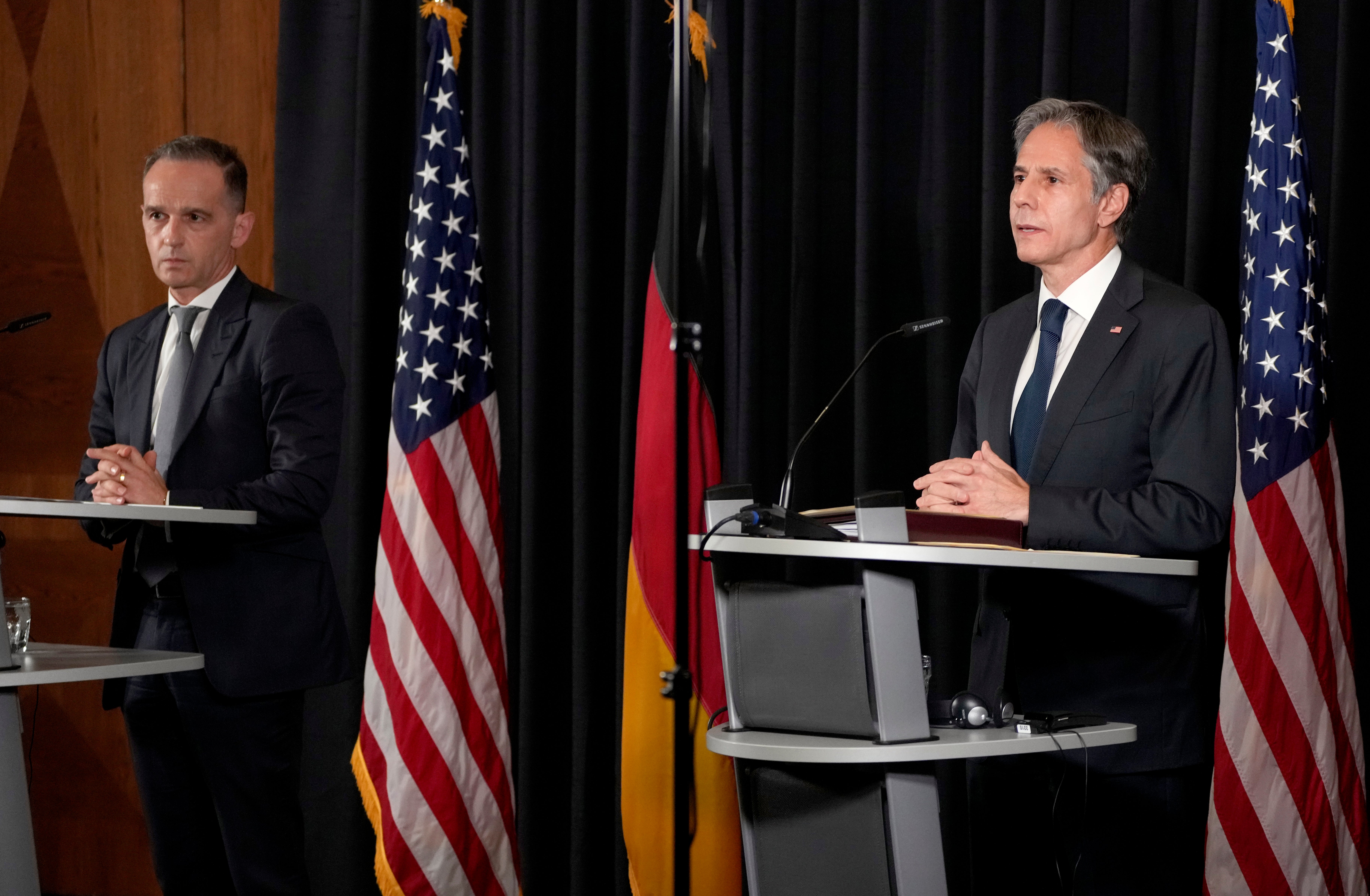US, Germany press for Iran to return soon to nuclear talks
The U.S. and Germany have stepped up pressure on Iran to return soon to talks on its nuclear program

Your support helps us to tell the story
From reproductive rights to climate change to Big Tech, The Independent is on the ground when the story is developing. Whether it's investigating the financials of Elon Musk's pro-Trump PAC or producing our latest documentary, 'The A Word', which shines a light on the American women fighting for reproductive rights, we know how important it is to parse out the facts from the messaging.
At such a critical moment in US history, we need reporters on the ground. Your donation allows us to keep sending journalists to speak to both sides of the story.
The Independent is trusted by Americans across the entire political spectrum. And unlike many other quality news outlets, we choose not to lock Americans out of our reporting and analysis with paywalls. We believe quality journalism should be available to everyone, paid for by those who can afford it.
Your support makes all the difference.The U.S. and Germany on Wednesday stepped up pressure on Iran to return soon to talks on its nuclear program, with Germany's foreign minister saying that a delay of two or three months floated by Tehran is too long.
The remaining parties to the 2015 accord with world powers meant to contain Iran's nuclear program held several rounds of talks in Vienna earlier this year on how to bring the U.S. back into the deal and how Iran can return to compliance with its terms.
But the last round ended in June and no date has been set for their resumption. Last week, new Iranian Foreign Minister Hossein Amirabdollahian said “the other party understands that it takes two to three months for the new administration to establish and do planning for any sort of decision.”
German Foreign Minister Heiko Maas said after meeting U.S. Secretary of State Antony Blinken that that isn't good enough. He said he told Amirabdollahian last week that “two or three months is a time frame that is much too long for us” and called for a quicker return.
The U.S. unilaterally pulled out of the nuclear deal, known as the Joint Comprehensive Plan of Action, in 2018 under then-President Donald Trump. Britain, France, Germany, China and Russia have tried to preserve the accord, and President Joe Biden has said he is open to rejoining the pact.
Asked whether the delay suggested by Iran is too long for a return to the accord as it stands to be possible, Blinken said: “I’m not going to put a date on it, but we are getting closer to the point at which a strict return to the compliance with the (nuclear deal) does not reproduce the benefits that that agreement achieved.”
“We’ve been very clear that the ability to rejoin the (deal), return to mutual compliance, is not indefinite,” he added.
After the U.S. withdrawal, Iran embarked on a strategy of deliberately violating the deal. That is seen as an attempt to pressure Europe to give Iran incentives to offset the crippling American sanctions re-imposed after the U.S. pullout.
On Tuesday, the U.N. nuclear watchdog said Iran has continued to increase its stockpile of highly enriched uranium in contravention of the accord. The International Atomic Energy Agency also told member states in its quarterly report that its verification and monitoring activities have been “seriously undermined” since February by Iran’s refusal to let inspectors access IAEA monitoring equipment.
Iranian President Ebrahim Raisi warned Wednesday that a “nonconstructive” attitude by the U.N.’s nuclear watchdog could damage the nuclear talks.
The Iranian government’s website quoted Raisi as saying that Iran has cooperated with the IAEA, indicating Tehran’s willingness to be transparent in its nuclear activities. “It is natural that in the case of a nonconstructive (attitude) in the agency, it is not logical to expect Iran to have a constructive reaction," he said.
___
Associated Press writer Nasser Karimi in Tehran, Iran contributed.